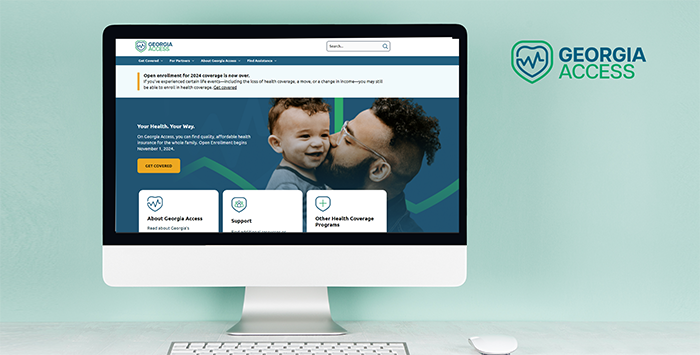January 16, 2025—Rates Cool Off – Forbes Advisor – Technologist
Editorial Note: We earn a commission from partner links on Forbes Advisor. Commissions do not affect our editors’ opinions or evaluations.
The rate on a 30-year fixed refinance decreased today.
The average rate for refinancing a 30-year fixed mortgage is currently 7.44%, according to Curinos. For refinancing a 15-year mortgage, the average rate is 6.53%, and for 20-year mortgages, it’s 7.34%.
Related: Compare Current Refinance Rates
Refinance Rates for January 16, 2025
*Source: Curinos
30-Year Fixed Refinance Interest Rates
The current 30-year, fixed-rate mortgage refinance is averaging 7.44%, compared to 7.44% last week.
The annual percentage rate (APR) on a 30-year, fixed-rate mortgage is 7.46%, compared to 7.46% last week. The APR is the all-in cost of a home loan—the interest rate including any fees or extra costs.
At the current interest rate of 7.44%, borrowers with a 30-year, fixed-rate mortgage of $100,000 will pay $695 per month for principal and interest, according to the Forbes Advisor mortgage calculator. That doesn’t include taxes and fees. Over the life of the loan, the borrower will pay total interest costs of about $150,215.
20-Year Refinance Interest Rates
The 20-year fixed mortgage refinance is currently averaging about 7.34%. That’s compared to the average of 7.29% at this time last week.
The APR, or annual percentage rate, on a 20-year fixed mortgage is 7.36% compared to 7.32% at this time last week.
At the current interest rate of 7.34%, a 20-year, fixed-rate mortgage refinance of $100,000 would pay $796 per month in principal and interest. That doesn’t include taxes and fees. That borrower would pay roughly $90,943 in total interest over the life of the loan.
15-Year Refinance Interest Rates
For a 15-year fixed refinance mortgage, the average interest rate is currently 6.53% compared to 6.54% at this time last week.
The APR, or annual percentage rate, on a 15-year fixed mortgage is 6.56%. That compares to 6.57% at this time last week.
Using the current interest rate of 6.53%, a 15-year, fixed-rate mortgage refinance of $100,000 would cost $873 per month in principal and interest—not including taxes and fees. That would equal about $57,116 in total interest over the life of the loan.
30-Year Jumbo Refinance Interest Rates
The average interest rate for a 30-year, fixed-rate jumbo mortgage refinance is 7.43%. Last week, the average rate was 7.43%.
Borrowers with a 30-year, fixed-rate jumbo mortgage refinance with today’s interest rate of 7.43% will pay $694 per month in principal and interest on a $100,000 loan.
15-Year Jumbo Refinance Interest Rates
The average interest rate on the 15-year fixed-rate jumbo mortgage refinance remained unchanged at 6.92%. Last week, the average rate was 6.89%.
Borrowers with a 15-year fixed-rate jumbo mortgage refinance with today’s interest rate of 6.92% will pay $895 per month in principal and interest per $100,000. That means that on a $806,500 loan—the 2025 conforming loan limit determined by the Federal Housing Finance Agency— you’d pay around $492,169 in total interest over the life of the loan.
Are Refinance Rates and Mortgage Rates the Same?
Mortgage lenders charge different interest rates for purchase and refinance loans. Current refinance rates are typically 0.01% to 0.15% higher for a 30-year fixed rate versus a purchase loan.
You can reduce your interest rate by paying your closing costs up front instead of rolling them into the loan with a no-closing-cost refinance loan. Buying discount points and avoiding mortgage insurance can also help.
When Refinancing Makes Sense
There are lots of good reasons to refinance your mortgage, but for most homeowners, it comes down to lowering the interest rate, reducing monthly payments or paying off the loan more quickly. Refinancing can also allow you to tap some of your home’s equity or eliminate private mortgage insurance (PMI).
It’s important to keep in mind that refinancing carries costs, and for that reason makes more sense if you plan to stay in your home for some time. It can be helpful to calculate the “break-even point” for a potential refinance—to see how long it will take for savings from the new mortgage to outweigh closing costs. Try to find out what those fees will be and divide them by the monthly savings from the new mortgage.
Check out our mortgage refinance calculator to help you decide if this is a good time to refinance.
Is Now a Good Time To Refinance?
Consider refinancing your mortgage when you need a more affordable monthly payment, want to stop paying annual FHA or USDA loan fees or would prefer a fixed interest rate. You may also consider a cash-out refinance to borrow from your home equity.
However, as refinance rates have increased by several percentage points from near-term lows in late 2021, it can be harder to replace your existing interest rate with a lower one, unless you refinance to a 15-year mortgage. As a result, extending your loan term is the one way to reduce your payment, but you can end up paying more total interest.
The application process is similar to buying a home. Plus, home appraisal fees and closing costs from 2% to 6% of the loan amount apply and add to your lifetime borrowing costs.
How To Qualify for Today’s Best Refinance Rates
Refinancing a mortgage isn’t that different than taking out a mortgage in the first place, and it’s always smart to have a strategy for finding the lowest rate possible. Here are some suggested approaches to get the best rate:
- Polish up your credit score
- Lower your debt-to-income ratio
- Keep an eye on mortgage rates
- Consider a shorter loan
Having a strong credit score is one of the best things you can do to get approved and get a lower rate. You’re also likely to look better to lenders if you don’t have too much debt relative to your income. You should keep a regular watch on mortgage rates, which fluctuate often. Also see if you can manage a mortgage payment for a shorter loan term since they usually have lower interest rates.
Frequently Asked Questions (FAQs)
How do you find the best refinancing lender?
You should always shop around when you’re trying to get a new mortgage or refinance an existing one. Take a look at the best mortgage refinance lenders as a starting point and try applying online. Always find out the closing costs each lender will charge, and make sure you’re able to communicate well with the lender you want to choose. In a bumpy housing market, you’ll probably be in touch with the lender more often than you realize.
How soon can you refinance a mortgage?
Most lenders allow you to refinance a mortgage six months after you start paying it off, although some require that you wait 12 months. Contact your lender to be sure.
How much does it cost to refinance a mortgage?
It can cost as much as 2% to 6% of the full cost of the loan to refinance a mortgage. Make sure to find out the exact closing costs from your lender.


